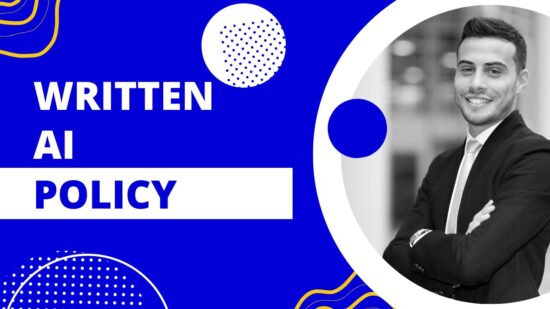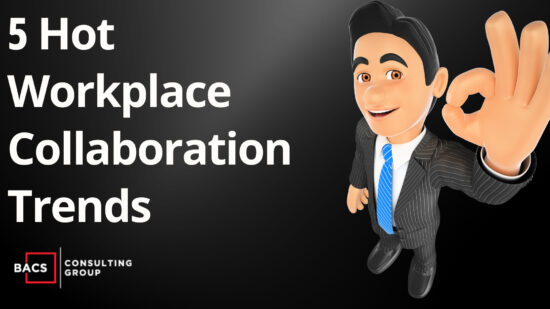Does Your Organization Have An Employee AI Policy? Discover the Urgency Today
As artificial intelligence (AI) continues to penetrate multiple facets of day-to-day operations, organizations need a well-defined AI policy to manage the ethical, legal, and operational standards associated with its use.
An employee AI policy is crucial for organizations that rely on AI-powered tools or aspire to develop AI solutions. By implementing a robust AI usage policy, your organization can ensure alignment with corporate governance and fiduciary obligations.
The widespread use of AI platforms such as ChatGPT, Bard, Bing, DALL-E, and Midjourney further amplifies the need for an AI policy. These generative AI tools perform tasks by mimicking human intelligence. While they offer incredible capabilities, their unregulated use can lead to unforeseen consequences.
To safeguard your organization against potential risks and liabilities, it’s important to establish a clear AI policy that outlines the acceptable use of AI tools for your employees.
Key Takeaways
- An employee AI policy is vital for managing legal, ethical, and operational standards for AI use.
- A robust AI usage policy aligns with corporate governance and fiduciary obligations.
- A clear AI policy mitigates potential risks and liabilities from using AI tools.
The Imperative of an Employee AI Policy
As artificial intelligence (AI) continues to integrate into the workplace, organizations must develop and implement an employee AI policy. This policy should address various aspects of AI usage among employees, including compliance and legal implications, moral and ethical considerations, and brand reputation and public trust.
Compliance and Legal Implications
With the rise of AI usage across industries, regulatory bodies are paying close attention to AI’s impact on data privacy, security, and compliance. To minimize the risk of violating any laws or regulations, your organization needs an AI policy in place that:
- Clearly outlines compliant AI use, as well as any potential legal consequences
- Takes into account data protection and privacy regulations, such as GDPR
- Ensures employees are adequately trained on AI tools and their legal implications
Failure to address these legal concerns may lead to financial penalties, legal disputes, and a negative impact on your organization’s operations.
Moral and Ethical Considerations
AI can potentially raise significant moral and ethical dilemmas in the workplace, so it’s essential to establish a comprehensive policy addressing these concerns. Consider the following when implementing your policy:
- Bias and discrimination: Ensure AI tools undergo thorough testing for potential biases that could lead to discriminatory practices in hiring, promotions, or product development.
- Transparency: Communicate your organization’s stance on AI use, informing employees of their responsibilities within this developing field.
- Accountability: Ensure the policy defines roles and responsibilities to hold employees and AI systems accountable for their actions.
Brand Reputation and Public Trust
Lastly, an employee AI policy should safeguard your organization’s brand reputation and public trust. Keep in mind that customers and stakeholders value transparency and responsible AI use. Key aspects of your policy should address:
- Privacy concerns: Ensure your AI systems/usage aligns with consumer and stakeholder expectations on data privacy.
- Public relations: Have a plan to handle any potential controversies arising from AI usage, including providing clear explanations and outlining remediation steps.
- Collaboration: Encourage an open dialogue with stakeholders and the public to demonstrate your organization’s commitment to responsible AI practices.
Components of an Effective AI Policy
Developing an AI policy for your organization is essential in today’s rapidly evolving digital landscape. In this section, we’ll outline the key components you should include in your AI policy to ensure AI’s ethical and responsible use in the workplace.
Transparency in AI Operations
Your AI policy must promote transparency in how AI systems operate within your organization. This includes:
- Clearly explaining the purpose and functionality of AI systems
- Documenting the data sources used by AI algorithms
- Communicating any limitations or biases in AI technologies
By fostering transparency, you can help employees better understand and trust the AI systems they interact with.
Employee Data Privacy
As AI systems often rely on personal data, your policy should prioritize employee data privacy. Ensure that your policy:
- Specifies the types of employee data used by AI systems
- Outlines the steps taken to protect and anonymize data
- Explains employees’ rights to access, modify, or delete their data
By safeguarding employee data privacy, you can minimize the risk of misuse and demonstrate your organization’s commitment to ethical data practices.
AI Usage Guidelines
Your AI policy should also establish clear guidelines for employee AI deployment and usage. This can help prevent misuse or unintended consequences. These guidelines should:
-
-
- Define acceptable and unacceptable use of AI tools
- Specify training requirements for employees using AI systems
- Address potential ethical concerns, such as discrimination or bias
-
You can empower employees to use AI technologies responsibly and effectively by providing AI usage guidelines.
Regular Policy Review and Updates
Finally, your AI policy should be a living document, subject to regular review and updates. This ensures your policy remains relevant as AI technologies evolve. Consider the following recommendations:
- Establish a timeline for periodic policy review (e.g., annually)
- Assign a dedicated team or committee to oversee AI policy updates
- Encourage employee feedback to identify areas for improvement
Implementing AI Policy in the Workplace
To ensure your organization’s successful adoption and management of artificial intelligence (AI), it’s vital to establish an AI policy in the workplace. AI policies can help organizations manage the ethical and legal risks associated with AI and define guidelines employees must follow when using AI technology.
Training and Education
Before implementing any AI tools in the workplace, it’s crucial to educate and train your employees on responsible AI usage. This may include:
- Awareness sessions: Conduct informative sessions to ensure employees understand AI, its capabilities, and potential risks.
- Skill workshops: Organize workshops to help employees gain essential skills for using AI technology responsibly and effectively.
- Continued learning: Encourage employees to stay updated with AI developments, ethical concerns, and best practices.
AI Policy Enforcement
Establishing your organization’s AI policy is the first step—enforcement is key to success. Here are some practices that can aid in AI policy enforcement:
- Clear communication: Ensure your AI policy is well-documented and easily accessible to all employees.
- Monitoring: Regularly monitor AI usage to ensure employees adhere to your organization’s policy.
- Accountability: Define the roles and responsibilities of employees, managers, and IT teams to ensure each party remains accountable for their part in enforcing the AI policy.
- Regular updates: Update your AI policy as AI technologies and legal regulations evolve, ensuring your organization stays compliant and current.
Feedback Mechanisms
Establishing efficient feedback mechanisms is vital for continuously improving your organization’s AI policy implementation. Some ways to integrate feedback mechanisms include:
- Surveys: Conduct regular employee surveys to gather feedback on AI policy effectiveness and identify potential areas of improvement.
- Focus groups: Organize focus groups with diverse participants to discuss the impact of AI policy and gather suggestions for enhancements.
- Reporting channels: Create an environment of open communication by providing anonymous reporting channels for employees to voice concerns and share insights related to AI policy implementation.
Challenges and Solutions
Technology Adaptation Barriers
Adapting to AI: One major challenge your organization may face is the integration of AI into existing business processes. This may require significant investment in infrastructure, training, and reorganization. To address this issue, you should consider:
- Identifying key areas where AI implementation can provide the most value to your organization.
- Testing AI technologies within controlled environments to understand their effectiveness and estimate necessary resource investments.
- Partnering with AI vendors that provide comprehensive support, ensuring a smoother transition.
Balancing Automation and the Human Workforce
Maintaining a balance: As AI technology becomes more integrated into daily operations, balancing automation and your human workforce is crucial. You must consider:
- Upskilling and reskilling: Invest in ongoing education to prepare employees to work with AI technologies and adapt to new roles.
- New job creation: AI can lead to opportunities for employees to focus on higher-value tasks, such as decision-making and strategy.
- Encouraging collaboration: Encourage employees to collaborate with AI tools, leveraging the strengths of both human and artificial intelligence.
Addressing AI Biases
AI bias: AI algorithms can sometimes produce biased results due to the data they are trained on. This can have serious ethical and legal implications for your organization. To address this challenge:
- Evaluate data sources: Assess the quality and representativeness of your data to ensure it’s free from bias.
- Apply explainable AI: Leverage AI solutions that provide insight into their decision-making process, helping to identify potential bias.
- Conduct regular audits: Implement measures to check for biases in AI outcomes and make necessary adjustments to prevent unfair treatment of employees or customers.
The Future of Work and AI
Preparing for AI Advancements
Your organization must have an employee AI policy in today’s rapidly evolving world. Integrating AI into your organization can drive job creation, as nearly half (49%) of companies expect AI adoption to create jobs within the next five years (source: AI: 3 ways artificial intelligence will change the future of work).
Here are some steps you can take to prepare for AI advancements:
- Identify key AI applications: Focus on two or three areas where AI can create the most value.
- Invest in employee education: Provide training programs to help your workforce develop new skills and adapt to AI technologies.
- Create a compelling narrative: Communicate the benefits of AI to your employees, making the adoption process more transparent and inclusive.
Fostering Innovation and Adaptability
Embracing AI requires fostering a culture of innovation and adaptability in your organization.
Your AI policy should align with the future of work policies. These policies combat employee burnout, improve engagement, and enhance efficiency (source: Combating Employee Burnout With AI And Future Of Work Policies – Forbes).
By implementing AI, you can optimize workflow. This ensures it complements human capabilities rather than replacing them (source: Does your agency have an AI usage policy yet? Here’s what you need to…).
To encourage innovation and adaptability, consider the following strategies:
- Promote collaboration: Encourage collaboration between employees and AI. This optimizes creative problem-solving and decision-making.
- Emphasize lifelong learning: Emphasize the importance of continuous learning and acquiring new skills to keep up with technological advancements.
- Prepare for changes in workforce composition: Recognize that the mix of occupations will change. Be prepared to redesign work to ensure humans and machines can effectively work together (source: AI, automation, and the future of work: Ten things to solve for).
BACS Consulting Group Can Help Your Organization With All Your AI Needs
A dedicated IT team is essential for maximizing performance, efficiency, and security as businesses continue to grow and evolve.
BACS Consulting Group offers customized IT solutions tailored to the needs of small, medium, and large organizations. By partnering with BACS, you can empower your business with artificial intelligence tools and policies to help you thrive in today’s fast-paced environment.
One integral aspect of incorporating AI into your business is establishing a robust Employee AI Policy. A well-crafted AI policy ensures compliance and enables your organization to harness the full potential of artificial intelligence.
The expertise of BACS Consulting Group can help you navigate the complexities of implementing AI into your business strategy while maintaining a secure and efficient infrastructure.
With BACS Consulting Group, you benefit from a diverse array of services:
- Managed IT support: An IT team dedicated to the safety and growth of your business, ensuring the security of your data and devices.
- Expert guidance: Professional advice on AI governance, strategy, and policy development to maximize your AI investment.
- Customized IT services: Solutions tailored to your organization’s needs, from small and emerging to medium and growing or large and evolving businesses.
Satisfied clients highly recommend BACS Consulting Group for their up-to-date technical expertise, exceptional service, and commitment to resolving your IT challenges. From network configuration issues to seamless AI integration, BACS offers responsive and effective support for organizations of all sizes.
Enlist the expertise of BACS Consulting Group to help you craft and implement your organization’s Employee AI Policy and join the ranks of satisfied clients who have found success with their technology infrastructure. Elevate your business through strategic planning and implementation of AI, and unlock your organization’s full potential today.






